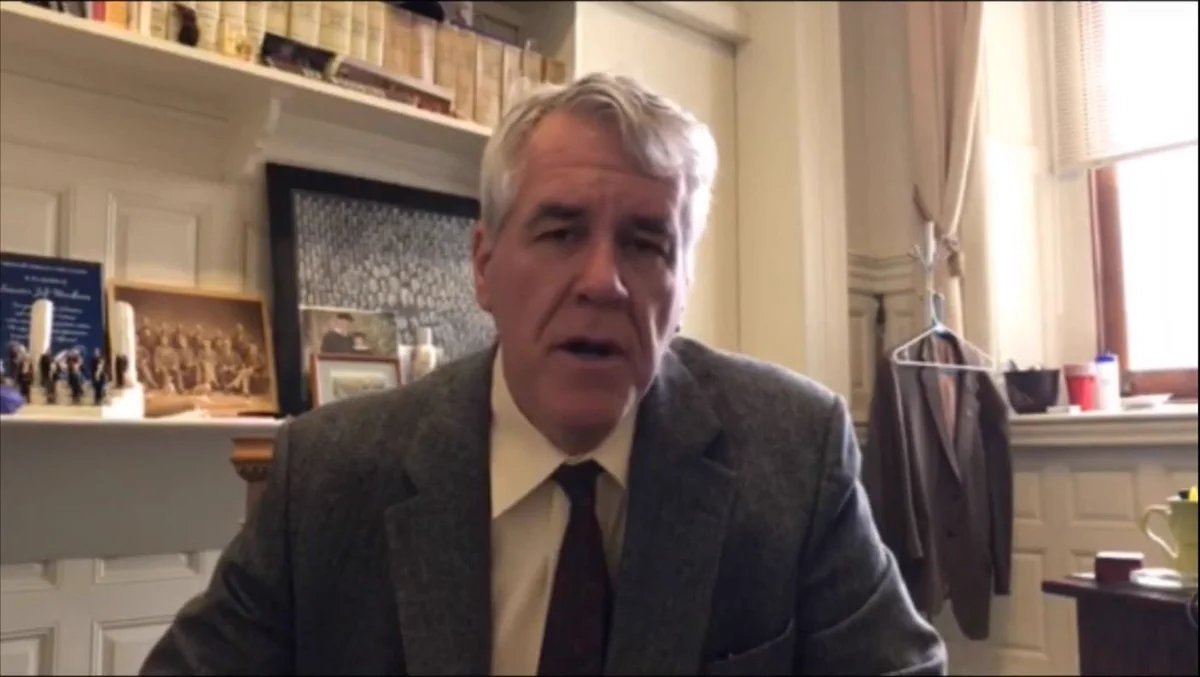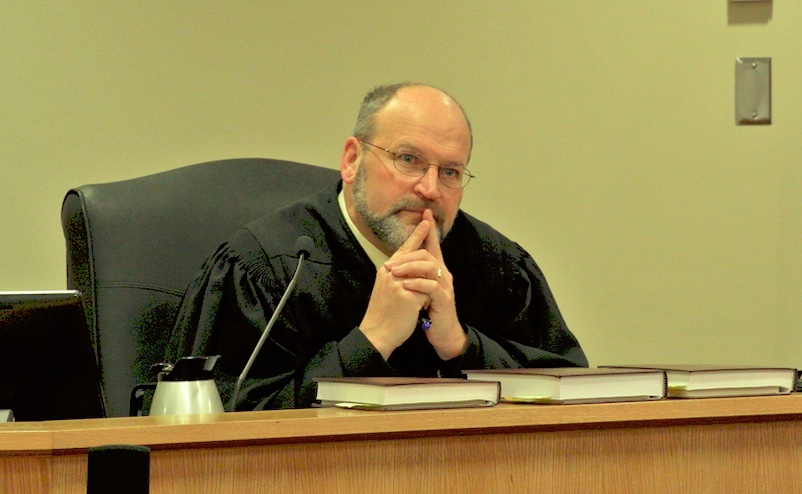Judge Mocks School’s Defense in ‘Two Genders’ Case, but Legal Loophole Lets Exeter Off Hook

A former Exeter High School student disciplined after he was falsely accused of using the wrong pronouns lost his lawsuit even though school officials lied on the stand, a judge ruled on Monday.
Rockingham Superior Court Judge Andrew Schulman quoted the band Buffalo Springfield (“There’s battle lines being drawn; Nobody’s right if everybody’s wrong”) and the movie “Casablanca” in his 18-page ruling that blasts school officials for their dishonest testimony.
Exeter High School Assistant Principal Marcy Dovholuk and Football Coach William Ball both testified during last year’s bench trial that the boy was suspended from the football team because he used supposedly inappropriate language like “bozo” and “STFU” in a text conversation and not because he allegedly misgendered another student.
“The school officials’ purported shock at plaintiff’s use of the terms ‘bozo’ and ‘stfu’ has all the believability of Captain Renault’s famous exclamation of shock in Casablanca. Context is everything,” Schulman wrote.
But the student still lost his case because New Hampshire law does not allow public institutions like schools to be held accountable for violating civil rights unless there are at least monetary damages, according to Schulman’s ruling.
“Because New Hampshire law does not recognize a private cause of action for a political subdivision’s violation of a plaintiff’s State Constitutional rights in the absence of bodily injury, property damage, personal injury or statute, the court grants judgment to the defendants,” Schulman wrote.
Attorney Richard Lehmann, who represents the student and his mother, called Schulman’s ruling a partial victory because the judge found the facts favor his client, even if the law does not.
“My clients won this case on everything but the law. The court believed their testimony and did not believe the testimony of school officials when they said that they did not take any action against my client because he expressed his beliefs,” Lehmann told NHJournal.
The boy, who has since transferred to another school, is referred to as MP in the lawsuit to protect his identity. MP and his mother were seeking $1 in nominal damages from the school for violating his free speech and religious rights. The student’s belief in only two genders is informed by science and his Catholic faith.
Christian advocacy organization, Cornerstone, backed MP’s lawsuit, and plans to back his appeal to the New Hampshire Supreme Court.
“Cornerstone and its attorneys look forward to appealing this decision to the New Hampshire Supreme Court—which will be bound by the trial court’s findings of fact—and to securing a ruling that will protect free speech and religious liberty for all Granite State students,” said Cornerstone’s Executive Director Shannon McGinley.
MP’s beliefs became a problem in September 2021 when he was a freshman and a member of the high school football team. While talking to friends after school on a bus, MP expressed his belief there are only two genders, according to the fact Schulman recites in his ruling. Another student, referred to as AG, took offense to that comment even though she was not part of the conversation and the comment was not directed at her, according to the ruling.
“AG formed the opinion that [MP] had the subjective belief that there are only two genders. In fact, that is exactly what [MP] believed. He follows what he represents to be the Catholic religious doctrine that God created human beings as male or female,” Schulman wrote. “AG believed differently and she took it upon herself to correct [MP] by saying in a loud and somewhat aggressive tone of voice that there are more than two genders.”
MP disagreed and said he believed there are openly two genders, and the conversation on the bus ended there. However, AG did not want to let it go and got MP’s cell phone number. She then restarted the argument via text later that evening, according to the ruling.
“How are you in high school and don’t know the difference between sex and gender? Give a valid reason why ‘there’s only 2 genders,’” AG demanded via text.
AG was seeking a fight when she sent the text unprompted, and continued to argue with MP into the night, according to Schulman.
“The court pauses to consider the import of AG’s text: She intruded upon the plaintiff’s private life by sending an uninvited and borderline hostile text to him directly. She asked a question, thereby inviting a response. She had no reason to expect that the response would be an apology indicative of cheerful agreement with her point of view. The tenor of her text did not suggest a desire for an open exchange of views. At best AG was proselytizing; at worst she was berating,” Schulman wrote.
Throughout the following text discussion, MP seems to want to end the conversation without backing down from his views, while AG continued to push her views. During the argument AG condescended to MP for his “ignorance” on gender. For his part, MP seemed to want to end the argument.
“Just STFU and leave me alone. U brought this up knowing ur wrong bozo. So grow up and maybe then you’ll realize that there are only 2 genders and sexes,” MP wrote.
But AG would not let the matter go, according to the ruling. The next day she sent an email to Ball that made false accusations MP engaged in “extreme ” transphobic bullying, according to Schulman. Neither Ball nor any other school official bothered to investigate AG’s accusations before they took action against MP, according to Schulman. Based on testimony and evidence presented at the trial, Schulman found no evidence MP engaged in any transphobic bullying.
Dovholuk and Ball decided to punish MP for his alleged transphobia, but in a way that left no paper record, according to Schulman. Instead of a formal write-up, Ball was authorized to suspend MP from the football team for up to a week.
On the witness stand, both Ball and Dovholuk claimed the punishment was for using the disrespectful terms “bozo” and “STFU,” and not for stating he believes there are two genders.
“The court does not believe the school witnesses on this point. The school witnesses are honorable people in an honorable profession, but, in the court’s view, they were dishonest about their motivations,” Schulman wrote.
Neither Ball nor Dovholuk responded to a request for comment. SAU 16 Superintendent Esther Asbell is out of the office until July 30. School Board Chair Bill Gauthier declined to comment Monday, saying he had yet to read the ruling.












